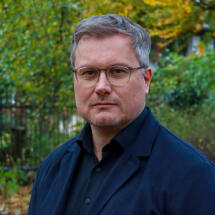Vita
Tim Neu studied History, Philosophy, and Education at the Universities of Bonn and Münster. After positions within the Collaborative Research Centre 496 “Symbolic Communication and Social Value Systems from the Middle Ages to the French Revolution” and at the Department of History in Münster, he received his doctorate in Modern History in 2011. He subsequently worked as a postdoctoral researcher at the University of Göttingen and held research fellowships at the German Historical Institutes in London and Washington. In 2017, he was appointed Junior Professor of European Expansion, 1700–1850, at the University of Bochum. Since 2020, he has been teaching and researching as Assistant Professor at the Department of History, University of Vienna.
Research Project
The Paymaster Multiple: Early Modern Officers between Legal Plurality and Status-Based Practice
In the early modern period, imperial expansion and long-distance rule depended on the projection of power, which in turn required a fiscal-military apparatus. Its strength lay less in ‘modern’ bureaucratisation than in the entanglement of public administration with private contractors: early modern polities were, in essence, contractor states.
This produced a marked plurality of law. In Britain, for example, military law, civil administrative law, and European customary commercial law operated side by side. The project applies the concept of “multiplicity” (A. Mol) to explore how officeholders navigated this plurality. Phenomena are understood not only as socially constructed but also as “multiple”: composed of different versions that nevertheless form a recognisable whole.
The project argues that the interplay of legal unity and pluralism was closely bound up with the status-based conduct of life of officeholders. Compromise practices, such as the notion of public service, integrated diverse legal obligations, while at the same time providing grounds for accusations of corruption and demands for standardisation.
The project will, first, develop a typology of such compromise practices; second, examine the scandalisation of status-based office-holding and its political consequences; and third, test the analytical potential of the concept of multiplicity and introduce it into historical methodology.
Selected Publications
Neu, Tim, „Military Money Men: The Toils of Entanglement and the Business Model of Harley & Drummond, Remittance Contractors“, in: Officers, Entrepreneurs, Career Migrants, and Diplomats. Military Entrepreneurs in the Early Modern World, edited by Philippe Rogger and André Holenstein, Leiden/Boston 2024 (= History of Warfare 145), pp. 397–425.
Neu, Tim, „Inszenierte, vielfältige und vielzeitige Gefüge - Bausteine einer Theorie der Verfassungsgeschichte“, in: Theorie der Verfassungsgeschichte. Geschichtswissenschaft - Philosophie - Rechtsdogmatik, edited by Ino Augsberg and Michael W. Müller, Tübingen 2023 (= Recht - Wissenschaft - Theorie 17), pp. 53–77.
Neu, Tim, „Glocal Credit. Die britische Finanzlogistik als fraktales Phänomen am Beispiel des Siebenjährigen Krieges“, in: Der Siebenjährige Krieg 1756-1763. Mikro- und Makroperspektiven, edited by Marian Füssel, Berlin/Boston 2021 (= Schriften des Historischen Kollegs; Kolloquien 105), pp. 75–93.
Neu, Tim, „Geld gebrauchen. Frühneuzeitliche Finanz-, Kredit- und Geldgeschichte in praxeologischer Perspektive“, in: Historische Anthropologie, 27,1 (2019), pp. 75–103.
Neu, Tim, „‚nicht in Meinung das (...) etwas neuwes eingeführt werde‘. Heuchelei und Verfassungswandel im frühen 17. Jahrhundert“, in: Praktiken der Frühen Neuzeit. Akteure, Handlungen, Artefakte, edited by Arndt Brendecke, Cologne/Weimar/Vienna 2015 (= Frühneuzeit-Impulse 3), pp. 619–629.
Neu, Tim, Die Erschaffung der landständischen Verfassung. Kreativität, Heuchelei und Repräsentation in Hessen (1509-1655), Cologne/Weimar/Vienna 2013 (= Symbolische Kommunikation in der Vormoderne / Studies presented to the International Commission for the History of Representative and Parliamentary Institutions 93).


